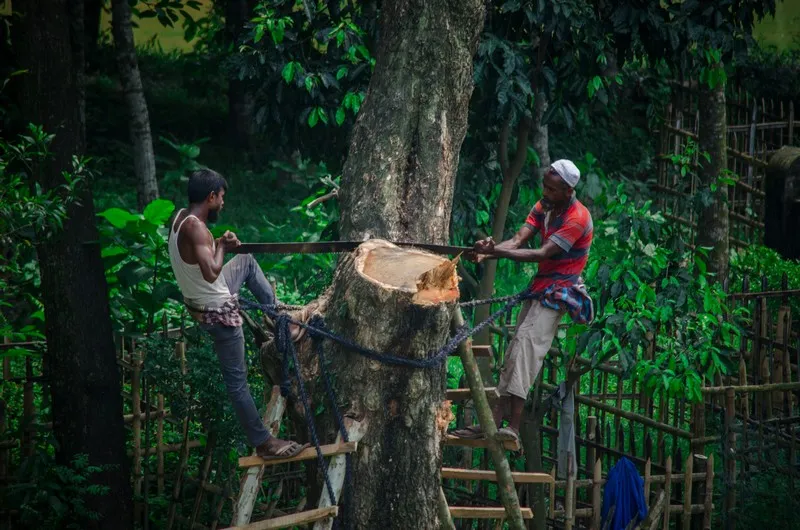Table of Contents
- Christmas and Consumerism: The Cycle of Production and Waste
- Christmas Decorations and Energy Use
- The Role of Food and Overconsumption
- Transport and Holiday Travel
- Rethinking Christmas: Towards Sustainable Practices
- Conclusion: Balancing Tradition and Sustainability
The Christmas holiday is widely celebrated as a time of festivity, family, and gift-giving across many parts of the world. While it embodies cultural significance, community bonding, and symbolic exchanges, Christmas also brings with it a significant environmental cost. From increased energy consumption to mass production of gifts, the environmental impact of Christmas is far-reaching and often overlooked. This article explores the various dimensions of Christmas through a sociological lens, focusing on the intricate relationship between festive traditions and environmental consequences. By critically analyzing these impacts, we aim to better understand how social practices surrounding Christmas contribute to environmental issues, and what this reveals about consumerism, culture, and sustainability in contemporary society.
Christmas and Consumerism: The Cycle of Production and Waste
One of the defining characteristics of Christmas, especially in Western countries, is consumerism. The social expectation to exchange gifts is embedded deeply in the culture, contributing significantly to the holiday economy. From a sociological perspective, this phenomenon can be analyzed through Thorstein Veblen’s concept of “conspicuous consumption” and Pierre Bourdieu’s ideas on cultural capital.
The Gift Economy and Its Environmental Consequences
Gifting during Christmas can be understood as a form of a social ritual, where relationships are maintained and strengthened through the exchange of goods. However, the environmental toll of this practice is severe. The production, packaging, and transportation of billions of gifts generate a massive carbon footprint. In addition to material waste, gift-giving often results in a proliferation of unwanted items, further adding to landfills and waste disposal issues.
The production process of gifts involves the extraction of natural resources, the use of energy-intensive manufacturing processes, and the involvement of complex global supply chains. Such practices not only consume valuable resources but also contribute to greenhouse gas emissions. Sociologically, this phenomenon underscores the paradox of social cohesion—while giving gifts may foster community and familial bonds, it simultaneously drives ecological degradation.
Packaging and the Waste Problem
The tradition of wrapping gifts is another contributor to environmental harm. The vibrant wrapping paper, ribbons, and plastic decorations often used to make gifts visually appealing are frequently non-recyclable. In many countries, millions of tonnes of wrapping paper and packaging are discarded during the holiday season. This waste highlights the tension between aesthetic cultural practices and their environmental ramifications.
Consumption as Cultural Practice
The cultural expectation to purchase and give gifts during Christmas can be connected to Bourdieu’s idea of habitus, where social norms and values are internalized and reproduced by individuals. Shopping becomes not only an individual act of consumption but also a cultural performance, one which carries the weight of tradition, obligation, and social status. These pressures lead to overconsumption, which has significant implications for sustainability.
Christmas Decorations and Energy Use
Christmas decorations, from strings of fairy lights to elaborate outdoor displays, are an integral part of celebrating the season. However, the energy usage associated with these decorations is substantial. Sociologically, we can examine the motivations behind these displays, which often include signaling festive spirit, fostering a sense of community, and showcasing one’s own social and economic status.
Lighting Displays and Community Symbolism
Holiday lights are culturally symbolic, often associated with warmth, joy, and celebration. The tradition of adorning homes and public spaces with strings of lights can be understood in terms of Emile Durkheim’s concept of collective effervescence, where shared rituals and symbols create a sense of social solidarity. However, while these decorations help bring communities together, they also have a negative environmental impact.
The electricity required to power extensive lighting displays is significant, leading to increased carbon emissions, particularly in areas reliant on fossil fuel energy production. Sociologically, this illuminates a broader trend of balancing cultural identity with environmental sustainability. The festive use of lights serves as a marker of celebration, but it also perpetuates practices that are increasingly environmentally unsustainable.
The Impact of Christmas Trees
The Christmas tree—whether real or artificial—presents another dimension of environmental impact. While natural trees are often seen as more environmentally friendly because they are biodegradable and can be replanted, the reality is more nuanced. The transportation and disposal of these trees contribute to carbon emissions. In contrast, artificial trees are typically made from plastic and involve a high carbon footprint during production, but they can be reused for several years.
Sociologically, the Christmas tree serves as a powerful symbol of tradition, deeply embedded in cultural rituals. Its environmental impact, however, challenges us to reconsider such traditions in light of current ecological concerns. The question arises: Can these cultural symbols be maintained in a more sustainable way, or is a fundamental shift in festive practices required?
The Role of Food and Overconsumption
Another significant environmental impact of Christmas comes from food consumption. Sociological analyses of food practices during Christmas reveal how cultural norms drive overconsumption, waste, and ecological strain.
Food Waste as a Cultural Byproduct
Get the full article AD FREE. Join now for full access to all premium articles.
View Plans & Subscribe Already a member? Log in.




